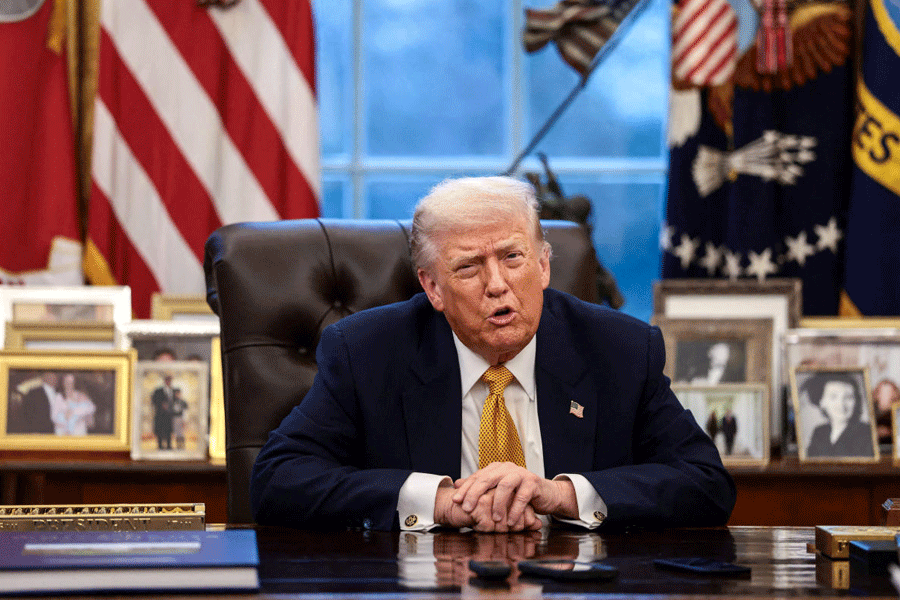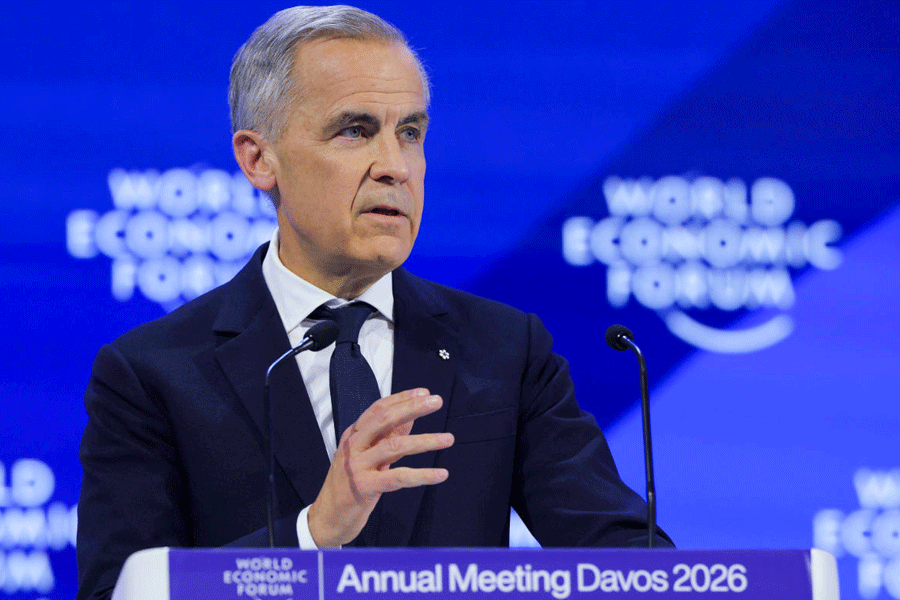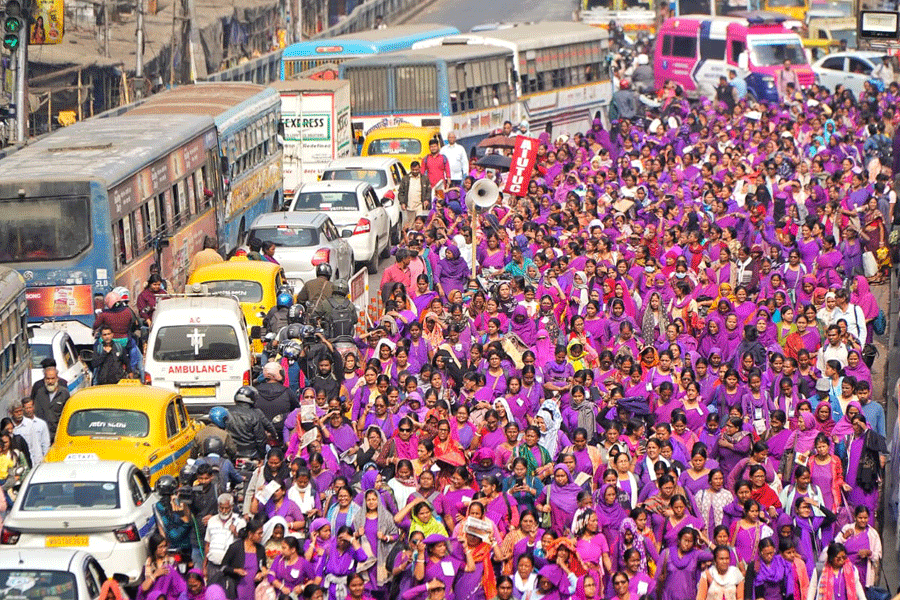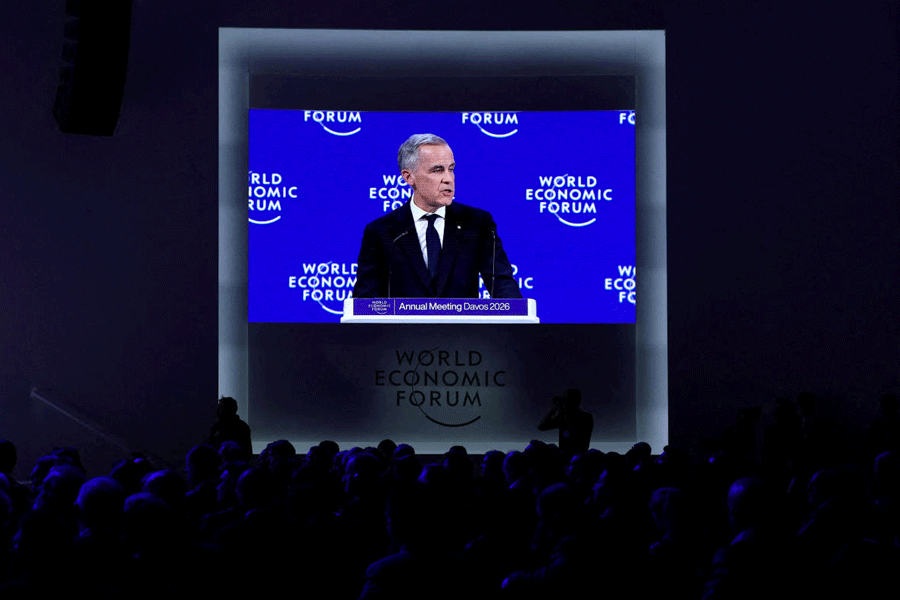 |
It’s a tricky job to review a film when the people who’ve made it — the director to the cast and crew — are your friends and veterans in their own right. Well, I am in the throes of a conflict within! But let me put down a few hard facts and hope it would be taken in the right spirit.
Suman Ghosh’s Dwando revolves around Sudipta (Ananya), who’s married for 10 years to Anik (Koushik) but is without a child. The marriage has turned cold and while Anik is away on an office trip, Sudipta has a fling with young NRI Rana (Samrat). Just when Anik sniffs something wrong on his return, he is detected with brain tumour and admitted for treatment under surgeon Dr Ashok Mukherjee (Soumitra).
As Anik’s condition worsens, Sudipta discovers she is pregnant. It is now that she faces a moral dilemma. On the one hand, she realises she’s still in love with Anik and wants him to live. On the other, she can’t deny the passion in her relationship with Rana and her desire to give birth to his child. The last proposition being impossible in case Anik survives, life seems to have set two clear binaries for her. One stormy night, she turns up at Dr Mukherjee’s door to know the fate of her ailing husband (on which her decision depends). The rest is about the strange bond that develops between the two and how the doctor puts an end to Sudipta’s dilemma, letting love triumph over everything else.
Does the story ring a bell? Yes, Dwando is inspired by — or should we say an ‘adaptation of’ — Polish master filmmaker Krzysztof Kieslowski’s Decalogue II. No, don’t get me wrong! There’s no crime in being inspired by or even adapting a masterpiece. But what’s the harm in admitting, or rather acknowledging, it?
 |
For all those not in the know, the 10 short films in the Decalogue series are based on the Ten Commandments. Decalogue II is characteristic of Kieslowski’s style of filmmaking — minimalistic, straightforward cuts, simple light and framing pattern, minimum camera movement and absolute non-acting. That’s what made Decalogue II a tale of complex moral and existential crisis without making heavy weather of it. That is exactly where Dwando falters.
Dwando often slips into a stagey drama. An attempt to look at it as a separate, independent film leads to further problems. The actors try to act, making it more difficult for Suman. Ananya is, undoubtedly, one of the most talented actresses on Bengali television in recent times but here you feel she tries too hard to make a mark. She speaks English with a twang which makes some of her dialogues indecipherable. The frequent use of English in the film also seems a little unnecessary.
Koushik and Samrat try to do justice to their roles. For those of us who’ve worked with Samrat know that his role in this film is a waste of his abilities. And at the risk of sounding blasphemous, I would say that Soumitra does a commendable job as the eccentric medical genius, but he owes it to the fact that his role has been sketched a little differently from the original.
Dwando’s camerawork by ace cinematographer Barun Mukherjee — I apologise — fails to create the magic one expected. The frames are unimaginative, the light scheme is boring and the movements are contrived. The handsome dose of hand-held shots doesn’t match the nature and pace of such a film.
The saving grace is the film’s finale. The nearly half-hour-long confrontation sequence between Ananya and Soumitra has been written and shot better than the rest of the film. Soumitra excels and Ananya puts in a restrained act. It is only at this point that Dwando moves closest to what could have been a sensitive, thought-provoking film.
Mayookh Bhaumik’s music is yet another breather. It’s truly restrained and low-key, especially the background score. Baare baare by Rupam is a serene and beautiful song, blending with the mood.
Honestly, there’s no doubting Suman’s intention to make serious cinema. But for a film of this kind to take proper shape, it is absolutely necessary for all the departments of movie-making to strike a perfect, almost divine, balance. Sadly, that’s missing, making Dwando a ‘typical arty’ film.
P.S.: Suman does well by not explaining the characters’ backgrounds and by starting off with some sort of a non-linear narrative. But then, was it at all necessary to justify the characters’ action? Also, one wonders why, especially in a film of the alternative genre, does Anik have to be bad in bed for his wife to fall for another man?











